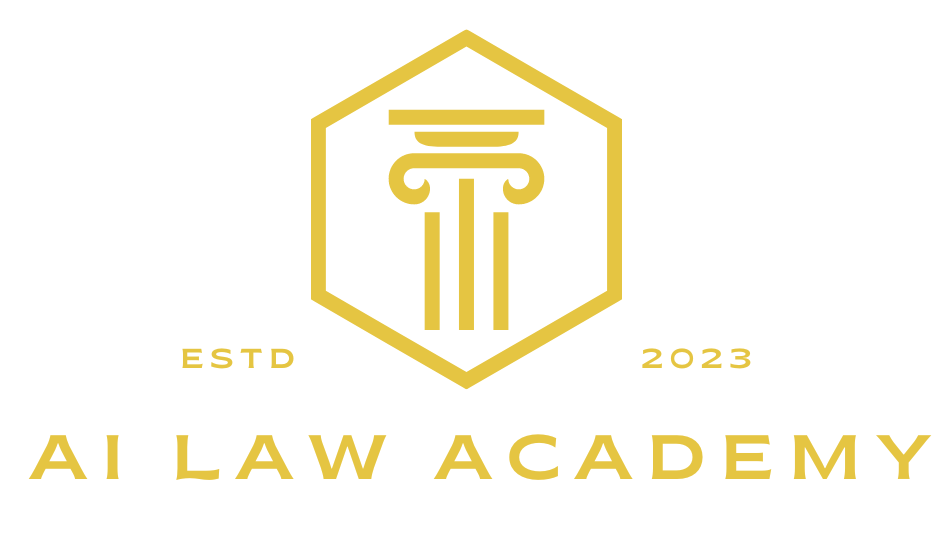In a recent analysis by Serena Wellen, law students voiced their concerns about the integration of artificial intelligence in legal practice and legal education. They shared apprehensions about AI's accuracy, potential impact on academic integrity, possible impediment to critical thinking, and the possible implications on their future careers. As a response to these concerns, the AI Law Academy (AILA) presents a comprehensive solution to address these issues, aimed at fostering an environment where AI and legal education can coexist productively and ethically.
First and foremost, accuracy is a concern that AILA takes very seriously. The AI Law Academy's courses are designed to mitigate issues of misinformation by focusing on the use of verified, reliable databases and AI tools. Students are taught how to discern the quality of the AI's data sources and trained to double-check AI-generated results against these reliable databases. This approach ensures that students are not simply relying on AI, but are using it as a tool to enhance their own research and understanding.
Regarding academic integrity, AILA believes that AI should not replace human effort and intellect, but rather support it. The courses offered by the AI Law Academy encourage ethical AI usage, emphasizing that AI is a tool for aiding research and expediting manual tasks, not for producing original academic work. AILA encourages law schools to incorporate AI policy into their academic integrity rules, and offers guidance and frameworks for such implementation.
Moreover, AILA recognizes the vital importance of critical thinking in the field of law. Rather than replacing this vital skill, AI tools should be used to free up students' time from manual and repetitive tasks, enabling them to dive deeper into complex legal analysis, crafting novel arguments, and drawing connections between non-obvious related authorities. AILA's courses guide students in using AI in this way, ensuring they understand the tool's limits and strengths.
Lastly, AILA acknowledges students' fears about the potential impact of AI on their future careers. It's true that AI can automate certain tasks traditionally done by entry-level associates, but this doesn't mean it will replace them. Instead, AILA argues that this opens the door for aspiring lawyers to engage in more complex, high-value tasks earlier in their careers. The AI Law Academy's courses equip students with the AI knowledge and skills that law firms are beginning to require, ensuring they are not only prepared for but stand out in this evolving job market.
The AI Law Academy is committed to providing students with the knowledge and skills they need to use AI effectively, ethically, and advantageously. By integrating AI education into legal training, AILA aims to alleviate students' concerns and help them see AI as a tool that can enhance, not hinder, their legal careers. We envision a future where law students and AI can work synergistically, with each enhancing the effectiveness and abilities of the other.
First and foremost, accuracy is a concern that AILA takes very seriously. The AI Law Academy's courses are designed to mitigate issues of misinformation by focusing on the use of verified, reliable databases and AI tools. Students are taught how to discern the quality of the AI's data sources and trained to double-check AI-generated results against these reliable databases. This approach ensures that students are not simply relying on AI, but are using it as a tool to enhance their own research and understanding.
Regarding academic integrity, AILA believes that AI should not replace human effort and intellect, but rather support it. The courses offered by the AI Law Academy encourage ethical AI usage, emphasizing that AI is a tool for aiding research and expediting manual tasks, not for producing original academic work. AILA encourages law schools to incorporate AI policy into their academic integrity rules, and offers guidance and frameworks for such implementation.
Moreover, AILA recognizes the vital importance of critical thinking in the field of law. Rather than replacing this vital skill, AI tools should be used to free up students' time from manual and repetitive tasks, enabling them to dive deeper into complex legal analysis, crafting novel arguments, and drawing connections between non-obvious related authorities. AILA's courses guide students in using AI in this way, ensuring they understand the tool's limits and strengths.
Lastly, AILA acknowledges students' fears about the potential impact of AI on their future careers. It's true that AI can automate certain tasks traditionally done by entry-level associates, but this doesn't mean it will replace them. Instead, AILA argues that this opens the door for aspiring lawyers to engage in more complex, high-value tasks earlier in their careers. The AI Law Academy's courses equip students with the AI knowledge and skills that law firms are beginning to require, ensuring they are not only prepared for but stand out in this evolving job market.
The AI Law Academy is committed to providing students with the knowledge and skills they need to use AI effectively, ethically, and advantageously. By integrating AI education into legal training, AILA aims to alleviate students' concerns and help them see AI as a tool that can enhance, not hinder, their legal careers. We envision a future where law students and AI can work synergistically, with each enhancing the effectiveness and abilities of the other.


